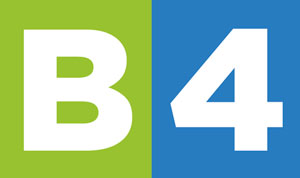
Why we need to ban “busy” in a post pandemic world
Alex Graves, CEO of Silicon Reef and an expert in modern working models and technology, explains why we need to stamp out the b word in the workplace.
If you ask someone how their week was, the answer is usually, “busy.” In fact, superficially, we’ve never been busier. Recent research shows that 52 per cent of UK workers said they were doing more hours in a week when working from home[i].
Saying you’re busy is a badge of honour. It’s a short-hand term used to say, “My work is important – don’t question the value I bring.” This view is compounded by a culture where unless you’re busy and miserable at work, you’re not successful. If you’re not living up to the LinkedIn influencer’s claim of rising at 4am, spending an hour in the gym, taking the kids to school then working a 14-hour day, you’re useless.
Yet being busy offers no value. We all know the phrase, “being a busy fool.” Many more will have heard of Parkinson’s Law, which states that work expands to fill the time available for its completion.
Furthermore, when people say they’re busy, they think it will be applauded by colleagues and managers. But what others hear is that the busy person is not very good at prioritising their time. In short, being busy has no correlation with productivity and it’s become a tyranny. We need to stop focussing on how busy we feel and more on how productive we are.
Productivity has plummeted
This has never been more important for the UK as it rights itself from the pandemic. Efficiency has always been a huge challenge for our nation. Just before the first lockdown, it was found that the UK’s productivity slowdown was the worst it’s been since the industrial revolution[ii]. To compound this, the ONS says output per worker as of Q2 2021 was 2.7 per cent below pre-pandemic levels[iii]. All those extra hours we’ve worked are probably to blame.
Yet the adoption of new technologies to improve productivity has gone through the roof in the last 18 months. Thanks to remote working, there are more people using software such as Microsoft 365, Asana, Monday and Slack than ever before. Within a month of the first lockdown, there were 2.7 billion Teams meeting minutes recorded in one day[iv].
Getting efficient
This begs the question of how HR teams and leaders can boost efficiency, help people become less busy and make use of the tools we are now all so familiar with.
Firstly, pay attention to time. Employees need to understand how to prioritise it, through training, and leaders need to collect and study data about how people are using it. Staff can use software such as To Do, which allows them to manage their tasks from a smartphone, tablet and computer.
Meanwhile team leaders might want to consider Planner, which allows team management, file sharing, and organisation. There are also tools that provide data driven information about the way people are working and gives them personalised recommendations to improve the way they do so.
With time in mind, always take breaks. If people don’t have time to clear their minds, recuperate and refocus, they will become tired. This has been shown to reduce productivity among 66 per cent of workers[v]. While an hour for lunch might be the goal, multiple smaller breaks have been proven to work just as well[vi].
No one should be forced from their work, but creating a culture where breaks are applauded is important. Perhaps link these breaks to natural deadlines throughout the day and use planning tools to set the deadlines with break rewards at the end of them.
Leaders also need to discourage a culture of endless meetings, whether face-to-face, on Zoom, Google, Teams of any other platform. They might even want to set boundaries and provide polite ways to decline. For those meetings that do happen, encourage them to be shorter and with fewer people. There is also tech available to provide workers and managers with analytics of their meetings. Perhaps one positive outcome of the lockdown is the ability to see how much time is wasted, which can be cut.
Once these measures have been taken, consider starting to offload some tasks with robotic process automation (RPA). This is when software robots can be trained to take on monotonous and repetitive tasks that sap time. These virtual assistants don’t totter around an office, they are bits of code that work like little helpers on your screen. They can be trained to take control of the mouse, keyboard and software to alleviate workload. They’re great for doing things like processing invoices, sorting emails and entering data. This allows people to focus on the work that offers greater value.
Finally, don’t miss out on the commute, just because you’re not commuting. With people operating from home, many now miss the natural decompression and thinking time that those moments sat in a car, bus, train or tube offer. Some of the collaboration tools we’ve become accustomed to have built-in virtual commute functions that prompt people to wrap up tasks, plan for the following day and even engage in mindfulness activity.
Ban the b word
Next time someone asks you how your week has been, take a deep breath and consider telling them what you achieved, not how busy you were. Or better still, tell them you had a good week and that everything was under control. Make them see how effortless success can be when you take the right steps.
There are hundreds of technological ways to boost efficiency individually and across organisations. Many of us have only scratched the surface of their power. But now we’re all using these platforms, let’s explore what they can offer and ban the b word forever.
[i] HR Magazine, Employees continue overworking during third lockdown
[ii] The Guardian, UK productivity slowdown worst since Industrial Revolution – study
[iii] ONS, UK productivity flash estimate: April to June 2021
[iv] Remote work trend report: meetings
[v] Smallbusiness.co.uk, Tiredness hits productivity for UK businesses
[vi] BBC, The tiny breaks that ease your body and reboot your brain
More in Business Strategy

What prospects are thinking but often fail to ask
I was at a B4 Ecosystem Event recently run by Caroline O’Connor of Fourth Born and she posed a brilliant question to the room. Article by David Finch of Purple Frog

‘Meanwhile in Oxfordshire..’ Case Study: Ducky Zebra, the sustainable kidswear brand...
‘Often girls’ clothes are pink, cute and impractical. They promote kindness, but not always confidence. And boys’ clothes are often blue, aggressive and adventure seeking. They promote confidence, but not always kindness. I wanted to bring these two characteristics together and allow all children, no matter what their gender, to celebrate both kindness and confidence.’ – Sally Dear, Founder of Ducky Zebra
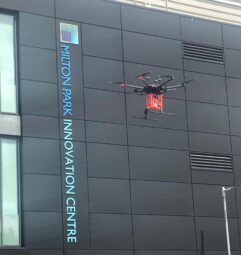
Innovative drone delivery trials take place at Milton Park
A pilot demonstration for a set of innovative drone and electric van freight trials was successfully completed at Milton Park.
From this author
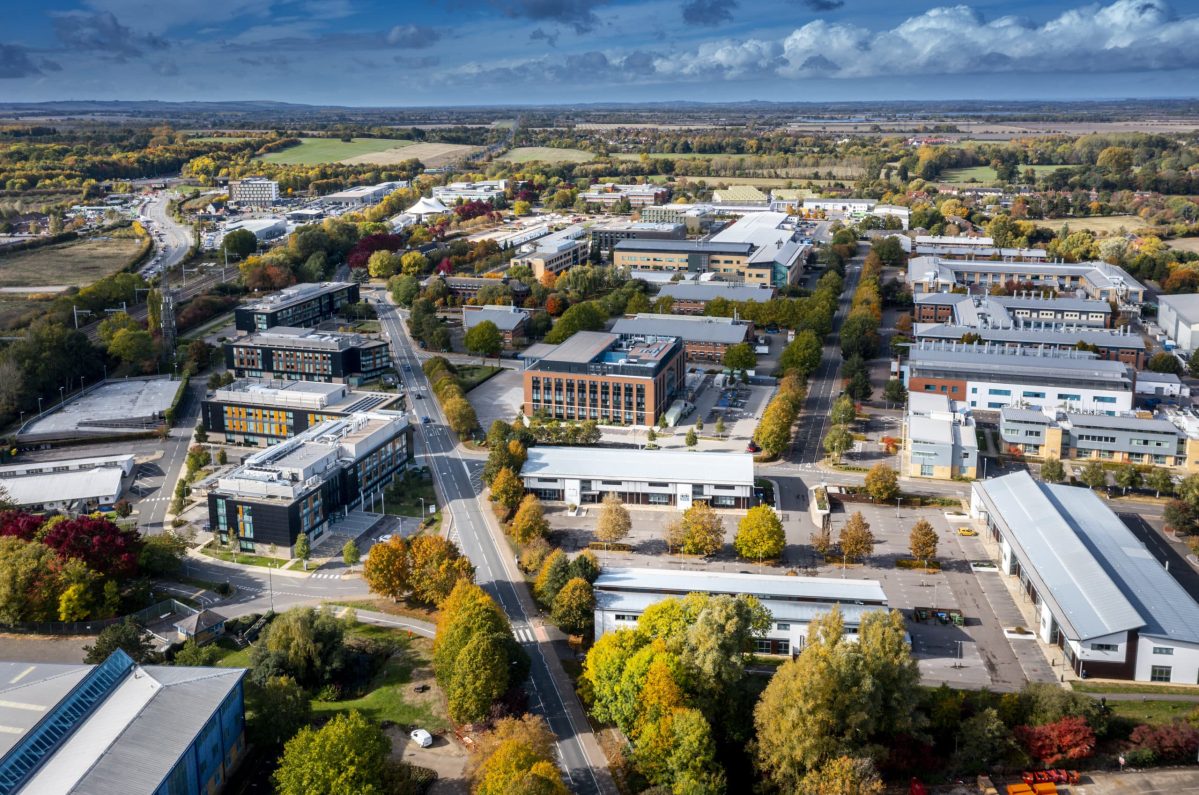
Pioneering planning scheme shortlisted for economic growth award
An exciting planning project in the Vale of White Horse has been recognised by being shortlisted for an industry award.
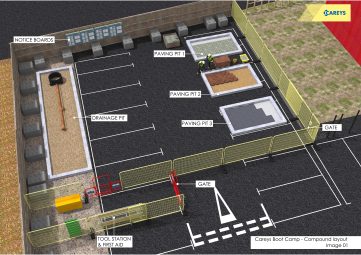
Pioneering Careys Construction Campus to be piloted at Oxford North
Oxford North, the new £700 million innovation district in Oxford, is to welcome Careys Construction Campus to provide free, flexible on-site ground working construction training which will guarantee an offer of an interview on completion of the training and boost jobs and talent in the industry.
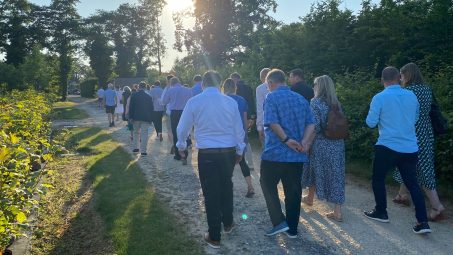
Projects at Nicholsons
Nicholsons has built a strong reputation for delivering exceptional landscaping and forestry projects across a diverse range of clients. From small private domestic gardens to large-scale commercial developments, the company continues to push the boundaries of creativity and sustainability in landscape design.


